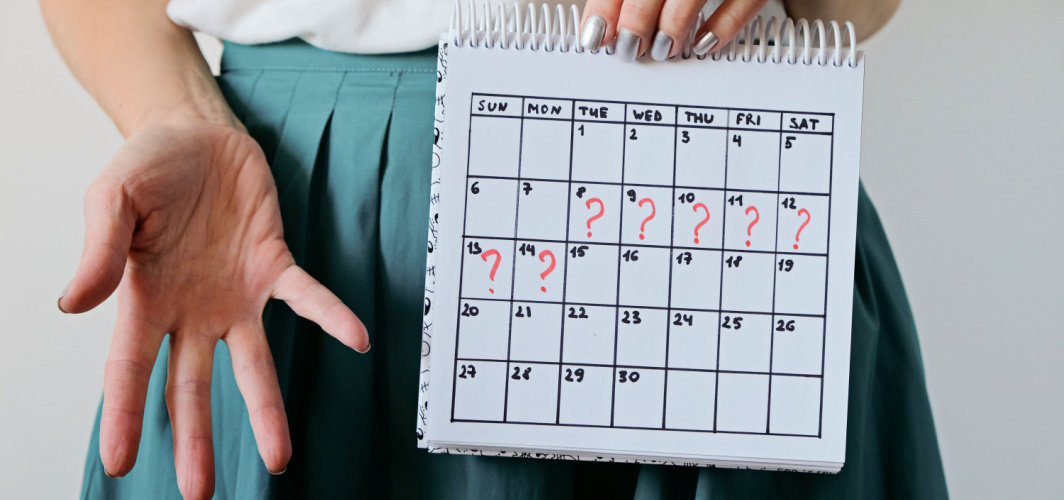- Home
- Blog
- Women Care
Looking For Safest Ways To Delay Your Periods? Try These Methods!
Women Care
Looking For Safest Ways To Delay Your Periods? Try These Methods!
By Apollo 24|7, Published on- 12 December 2022, Updated on -19 February 2023
Share this article
0
1 like

Every woman wishes she could delay her periods at least once at some point in her lifetime. Who wouldn’t want to avoid dealing with period cramps, mood swings and bloating during a vacation or an important event? Sometimes, the timing of your periods can be quite inconvenient, making you wish there was a way to postpone the unavoidable. Well, there is!
One can choose from various hormonal contraceptives to delay their period. Which hormonal contraceptive is the best for you depends on various factors, therefore, it’s highly advisable to consult with a doctor before you take any.
Hormonal Contraceptives to Delay Your Periods
Read on to find out what are the different types of hormonal contraceptives that you can use to delay your periods.
1. Combined Oral Contraceptive Pills
Combined contraceptive pills can only delay the periods if they are taken for a specific period regularly. There are 3 different types of combined pills, which include:
- Monophasic 21-day Pills: For this type, you take one pill daily for 21 days straight, followed by going without pills for a week, which is when you get your period. To delay your periods, don’t take this 7-day break and start with another packet of pills right away.
- Everyday Pills: In the case of everyday pills, you take an active pill daily for 21 days and then a dummy or inactive pill for the next 7 days before resuming another 21 days of active pills. To delay periods, miss out on the inactive pills and begin another course of active pills right away.
- Phasic 21-day Pills: In this type of pill, the combination of hormones is distinct in each pill, based on the phase you are in. Speak to your doctor and take these pills in the correct order to have the desired effect.
2. Norethindrone
If you are not on combined contraceptive pills, then your doctor may prescribe norethindrone for delaying your period. It only contains progesterone hormone. Doctors usually advise taking three norethindrone tablets daily. These should be taken 3 to 4 days before your periods are expected to start. Your periods should return to normal 2-3 days after stopping this medication.
3. Contraceptive Patch
A contraceptive patch releases hormones through your skin. It is typically advised to place a new patch every week for three weeks straight. The fourth hormone-free week is when your period occurs. To delay periods, you can apply a new patch on the fourth week without taking a break.
4. Birth Control Ring
These small, flexible rings are inserted into the vagina and kept in place for three consecutive weeks. Then, it is removed for a week, which is the time for a period to occur. To skip your period, keep the ring in place at all times. Make sure that you replace it every 3-4 weeks.
It is also widely believed that there are ways to delay periods naturally like lime juice, lentils, and apple cider vinegar. However, there is little to no research that supports these claims. If you wish to delay your menstrual cycle for any reason, the wisest course of action is to talk to a doctor about the best options.
If you need expert advice,
Consult an Apollo Gynaecologist
Medically reviewed by Dr Sonia Bhatt.
Services
Women Care
Leave Comment
Services
Recommended for you

Women Care
Laparoscopy For Infertility: Procedure, Uses And Recovery
Discover laparoscopy for infertility: Learn about the procedure, uses, recovery, and potential for achieving pregnancy. Get informed today!

Women Care
5 Major Health Issues Every Woman Must Know
The majority of women ignore their health problems keeping family and career as their priority. But every woman must know about these 5 major health issues at various ages from teenage to pregnancy to old age.

Women Care
Have You Missed Your Periods Lately? These Can Be The Reasons!
While several reasons can result in missed periods, the major ones include stress, pregnancy, hormonal changes, and lifestyle choices. Leading a healthy lifestyle and timely consultations with a gynaecologist can help in ensuring a steady menstrual cycle.
Subscribe
Sign up for our free Health Library Daily Newsletter
Get doctor-approved health tips, news, and more.

